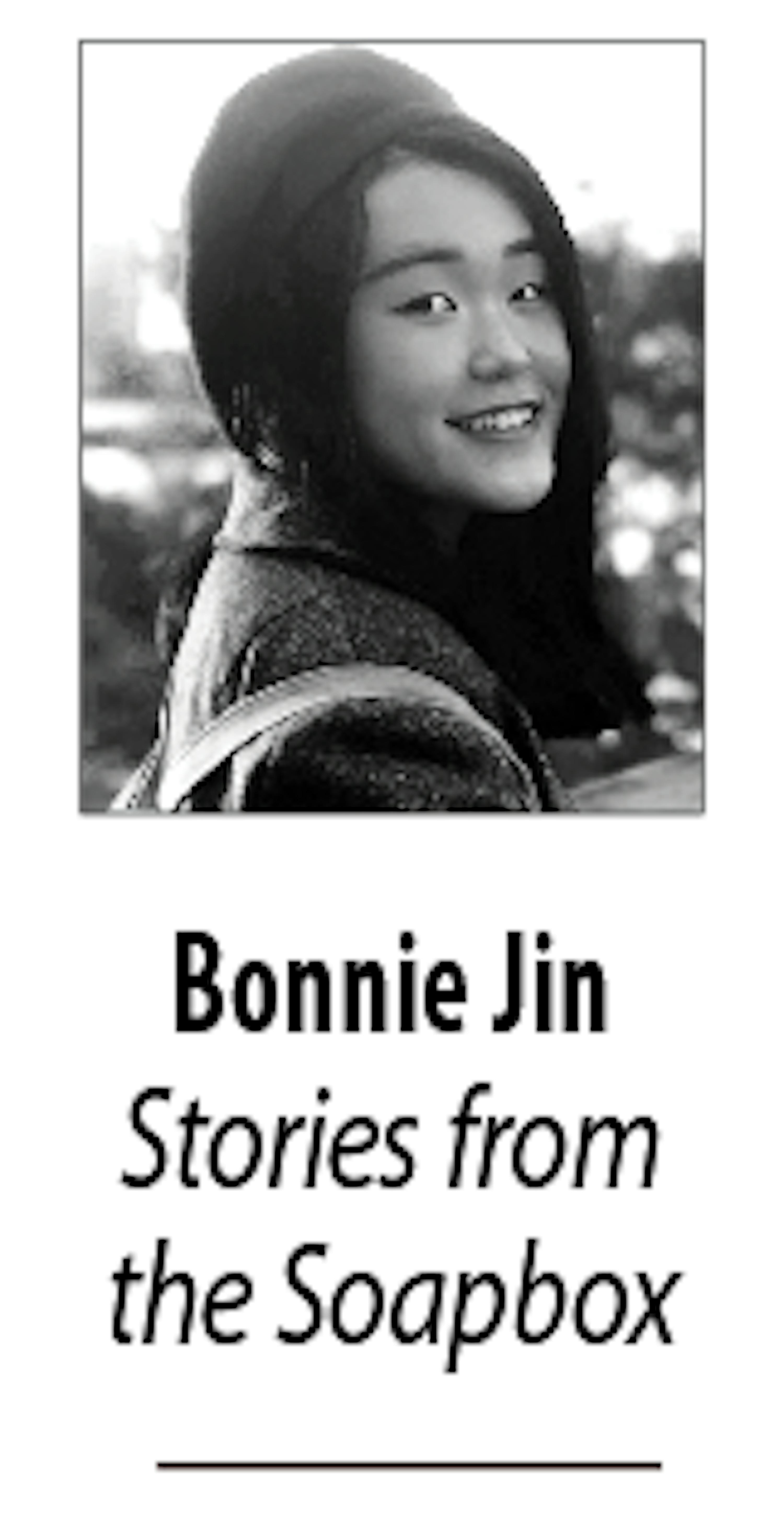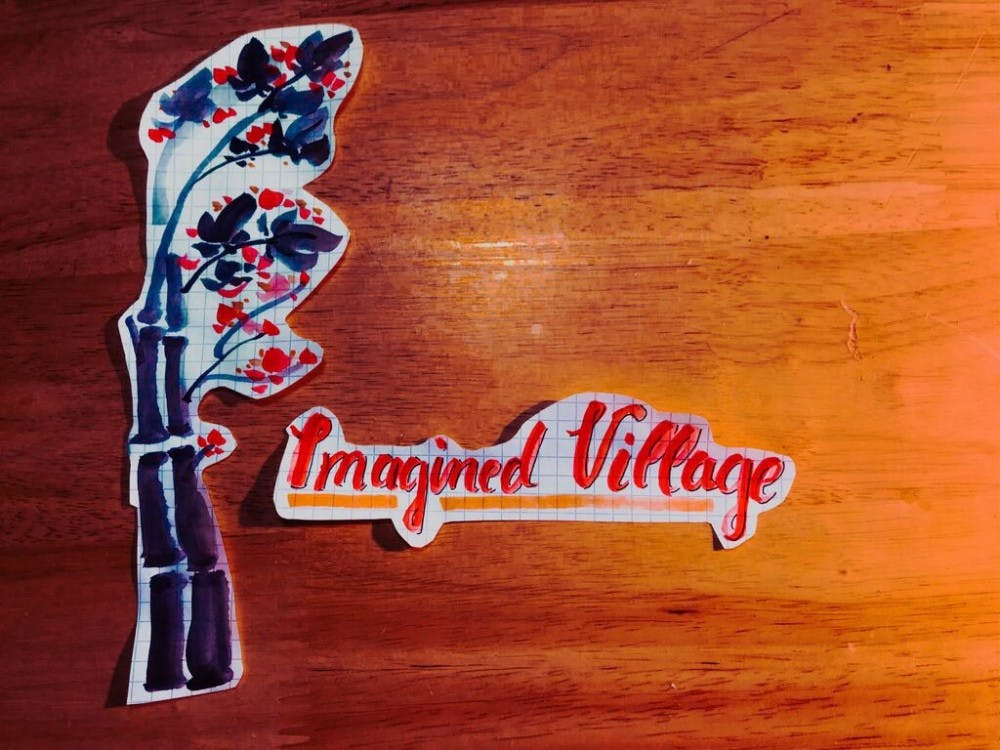
I) I grew up with my great-grandmother and the taste of her mayujie, a crepe-like delicacy from Dachen Island. I remember long nights sitting beside her, my chubby hands against hers, as she guided me in folding my first roll. And so we sat, that Saturday in 2004, rolling hundreds of mayujie at the dining room table.
“Take these mayujie to Fuyun,” she’d told my grandmother in 1954, as they sat outside their wooden house by the sea.
My grandmother, 17 at the time, walked four hours to leave a basket at Fuyun’s doorstep. Though she longed to run, her lotus feet were bound by string; life on Dachen Island existed as a time capsule of the Qing Dynasty.
On Jan. 19 1955, the People’s Liberation Army began a bombing campaign on the Dachen Islands, an isolated archipelago off the coast of Shanghai. It was in January that my great-grandmother had first heard that she lived in a so-called “country” with a power structure called “government” where a civil war was apparently raging. Two weeks later, mass evacuations began.
Dachen was the last island held by the Chinese Nationalists before their forced retreat to Taiwan. Even when she immigrated to Boston, my great-grandmother always imagined returning to Dachen and imagining the stories her friends would exchange with her at their reunion. Hours before boarding a small boat of the U.S. Seventh Fleet, she painted on the front door: “Leaving for a bit; be back soon.” She died, never returning.
II. My father grew up closest to his grandfather: They’d cook sweet potatoes wrapped in bamboo leaves in the mountains of Guishan, watching the sun set over rolling hills. Every night, my grandmother called for them to eat dinner, her voice bellowing across the majestic greens of flooded rice fields from a small cement house.
Dajinwa, the Dachen language, was the secret my dad and his granddad shared. As other children of the military dependent village shed their outsider tongue and assimilated into Taiwanese society, his grandfather’s stories of Dachen clung to my father for eternity.
He told my father, “When we return to Dachen, go to the main street and find a man named Fuyun. Tell him you’re my grandson, and he’ll give you candy to eat.”
One day my father decided to run away from home, and, walking through an unknown village, he smelled his mother’s ginger soup from a grandmother walking down the street.
He heard Dajinwa from the children selling metal wires, whose plastic coating they had burned off and breathed in. Mayujie wafted from a street vendor before him: it was as if the world his grandfather had described in crackling dialect had weaved itself into the living village before him.
“You must be Ah-Chun’s grandson!” He turned, and an old lady wobbled towards him, her feet liberated from rope. She gestured for him to come into her wooden shack, where an elderly group played mahjong in the center. They told him about his grandfather, who couldn’t read, but had involved everyone in the village with his coastal trading endeavors.
She’d told my father, “Everyone knew him. He was kind and very smart.”
Despite it being the last of the food they had that week, she offered him a small piece of Southern-style soft niangao out of pride.
The village on Dachen always stayed in my great-grandfather’s imagination. In a foreign land, the once proud village man was reduced to a factory worker, aged 68.
III. Last summer, my dad and I went back to visit the military dependent village. It was gone; everyone had left for the city. There were no elderly people to talk politics with and no one left who knew of Fuyun and his traditional candy shop.
As the two of us stood before lined rows of what once were wooden foundations for houses, the empty temple to the sea god and the one-room museum dedicated to Dachen émigrés, we realized that Dajinwa was now a secret left only to the two of us.
IV. Imagined villages: they’re a vague recollection of times past, a time of simple life in island countryside, a time when children could fall asleep on bamboo trees and wake to see the sunrise. It's when I sat across my great-grandmother, the warmth of the afternoon sun filling the air, rolling mayujie together, exchanging stories in Dajinwa. For many in America, it’s a time when workers had strong unions, when manufacturing had a future in this country and when people did not have to fight against automation.
Ultimately, our imagined villages are mere utopian dreams: we can never truly return to them because they exist as mere ideals in our minds. Dachen Island had no education system, basic medical system, or solution to the sporadic famines.
Adults in refugee villages disappeared in the night, rounded up by military police under suspicion of being communist. Our memories of times past, much like generalized glorifications of American history, fail to fully encompass the many complications, shortcomings and limitations of those times.
At the same time, our memories should not be completely abandoned. In a time when immigrant children are forced to reject their familial heritage in order to “fit-in,” we must find a balance between assimilation and cultural preservation.
Despite being condemned to never return, we must look forward to the futures we can shape.
Just as my great-grandmother created a new family in Boston, and my great-grandfather reinvented his life in rural Taiwan, I look forward to the communities I will find myself a member of.
If we are to improve our futures, we must look forward with optimism and imagine the villages we have yet to create.
Without the optimism of knowing that these idealistic imaginations can be achieved, that an alternative world of justice and equality for all can exist, how can we strive to improve our societies as they exist now?
On my 17th birthday it was the fifth anniversary of my great-grandmother’s death. We remembered her as we rolled mayujie, sitting off the coast of Boston.





